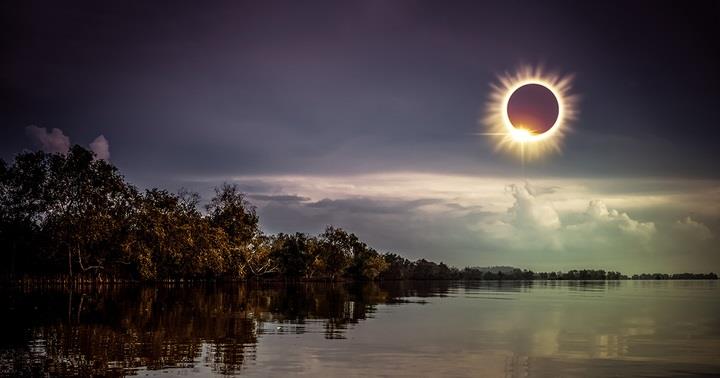
A boater's guide to safely viewing the April 8th Solar Eclipse
by Sea Tow Foundation 29 Mar 15:11 PDT

A boater's guide to safely viewing the April 8th Solar Eclipse © kdshutterman
Large parts of the United States will be treated to one of the greatest astronomical events in history on April 8, 2024 - The Solar Eclipse. For a period of time, many cities will be in the dark, and others in a dusk-like light in the middle of the day.
A solar eclipse occurs when the moon passes between the sun and the earth, blocking all or part of the sun. The path of the eclipse begins in Mexico and goes diagonally from Texas through Oklahoma, Arkansas, Missouri, Illinois, Kentucky, Indiana, Ohio, Pennsylvania, New York, Vermont, New Hampshire, and Maine. The rest of the states on either side of the path will witness a partial solar eclipse.
With this in mind, the Sea Tow Foundation is bringing awareness to the fact that some boaters will be on the water to observe the eclipse and may find themselves in an unfamiliar situation, similar to night-time boating. While the total eclipse will last only a few minutes, there will be a few hours of reduced daylight leading up to and after the total eclipse, which is scheduled to happen in the middle of the day.
"As we approach the April 8th solar eclipse, it's crucial for boaters to be aware of the unique challenges it poses on the water," said Gail R. Kulp, Executive Director of the Sea Tow Foundation. "From ensuring proper eye protection to testing navigation lights and wearing life jackets, safety is paramount during this celestial event. Let's make sure every boater stays safe and enjoys the eclipse from the water."
The following tips will help boaters enjoy the solar eclipse and stay safe on the water:
- If intending on watching the eclipse from your boat, ensure you have proper eyewear by purchasing solar eclipse glasses and plan to get them early so that they arrive on time for the big event. Without proper eye protection, you can harm or burn your retinas if you look directly at the sun, causing permanent damage. Eclipse glasses should be certified by the American Astronomical Society.
- Research what time the eclipse will occur in your specific area by checking out the NASA website. Plan to head out on the water well before the eclipse will occur. You don't want to miss it because you're busy finding the perfect spot to anchor.
- Test your boat's navigation lights before heading out as you'll need them during the eclipse.
- Be prepared, get anchored and stay away from busy boating channels and bridges. Make sure your anchor sticks so that you don't drift.
- All passengers should be wearing life jackets during the eclipse since it will be very dark during the event.
- Consider carrying a spotlight in case a boat is headed in your direction and doesn't see you.
- Wear sunscreen. Before and after the eclipse, you'll still be in direct sunlight.
The last time the U.S. saw a total solar eclipse was in 2017, but the weather was cloudy so most people could not actually see the phenomenon. You don't want to miss the April 8th eclipse because the U.S. will not witness another one until August 23, 2044.